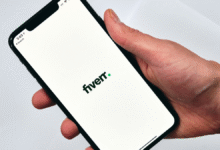Renting Digital Real Estate: What It Means and How It Pays (2025 Guide)

As we step further into the digital age, the concept of real estate has expanded beyond physical borders. Digital real estate refers to any online asset that holds value—such as websites, domains, online stores, or social media pages. And just like physical property, these assets can be rented, leased, or sold.
But what does renting digital real estate mean exactly, and more importantly—how does it pay? This guide breaks down the concept, shows you how to profit from it, and highlights why 2025 is the perfect time to jump in.
What Is Digital Real Estate?
Digital real estate refers to virtual properties that exist online. These include:
- Websites and blogs
- Domain names
- E-commerce stores
- Social media accounts or pages
- Email lists
- Virtual land in the metaverse
Like physical property, these assets can generate income through rentals, ads, affiliate marketing, or selling products/services.
What Does Renting Digital Real Estate Mean?
Renting digital real estate involves leasing out your online assets to businesses or individuals who want to use them for exposure, traffic, or sales. You’re not selling the asset—you’re just letting someone use it temporarily in exchange for money.
Common ways to rent digital property:
- Renting ad space on your website
- Leasing out your blog or niche site to brands
- Allowing businesses to post on your popular social media page
- Selling sponsored placements or featured listings
- Leasing metaverse land for virtual events or brand activations
How Does Renting Digital Real Estate Make You Money?
Digital property rental is a great passive income stream. Here’s how it pays:
1. Monthly Rental Income
Just like landlords charge tenants, you can charge brands monthly fees to use your website, email list, or social accounts.
2. Sponsored Content or Listings
Businesses pay you to publish articles or product listings on your site with backlinks to boost their SEO and traffic.
3. Affiliate Partnerships
You rent out space and get paid based on how many people click or buy products through affiliate links.
4. Email List Rental
If you own a clean and engaged email list, businesses might pay you to send out promotions to your subscribers.
5. Metaverse Land Rentals
With platforms like Decentraland or The Sandbox, you can rent virtual land to brands hosting digital events or creating experiences.
Real-Life Examples
- Website Owner
A blogger with 100,000 monthly visits rents out banner space to an online course company for $500/month. - Instagram Page
A meme page with 1 million followers charges $100 per post to promote brands. - Metaverse Investor
A virtual landowner leases space in The Sandbox to a clothing brand for their NFT drop event.
Pros of Renting Digital Real Estate
- Low overhead costs
- No physical maintenance
- Scalable income stream
- Completely online, flexible work
- High demand from marketers and businesses
How to Start Renting Digital Real Estate
- Choose Your Platform – Create or buy a website, blog, social account, or virtual land.
- Grow Your Audience – Use SEO, social media, and content to attract visitors or followers.
- Create a Media Kit – Show your traffic, reach, niche, and rates to attract partners.
- List Rental Options – Use platforms like BuySellAds, ShareASale, or even direct outreach.
- Automate and Monitor – Use tools like Google Analytics and email marketing software to track performance.
Best Platforms to Rent Out Digital Assets
| Platform Type | Best Options |
|---|---|
| Websites | BuySellAds, Ezoic, AdThrive |
| Email Lists | Swapstack, ConvertKit Collaborations |
| Social Media Pages | Influencity, Shoutcart |
| Metaverse Land | Decentraland, The Sandbox |
| Domains | Sedo, Dan.com |
Keyphrase Synonyms
- Renting virtual real estate
- Lease digital assets
- Monetizing online properties
- Virtual property income
- Passive income from websites
Is Renting Digital Real Estate Worth It in 2025?
Absolutely. With online business booming, more brands are looking for niche exposure and ready-made traffic. Instead of building from scratch, they’re willing to rent your digital assets.
If you already own high-traffic websites, engaged audiences, or virtual land, you’re sitting on valuable property. All you have to do is rent it out and collect the income.
Conclusion
Digital real estate rental is the modern equivalent of owning a profitable property without the bricks and mortar. It’s smart, scalable, and increasingly in demand. Whether you own a blog, a niche social media page, or a spot in the metaverse—you can start earning today by leasing out your virtual space.



